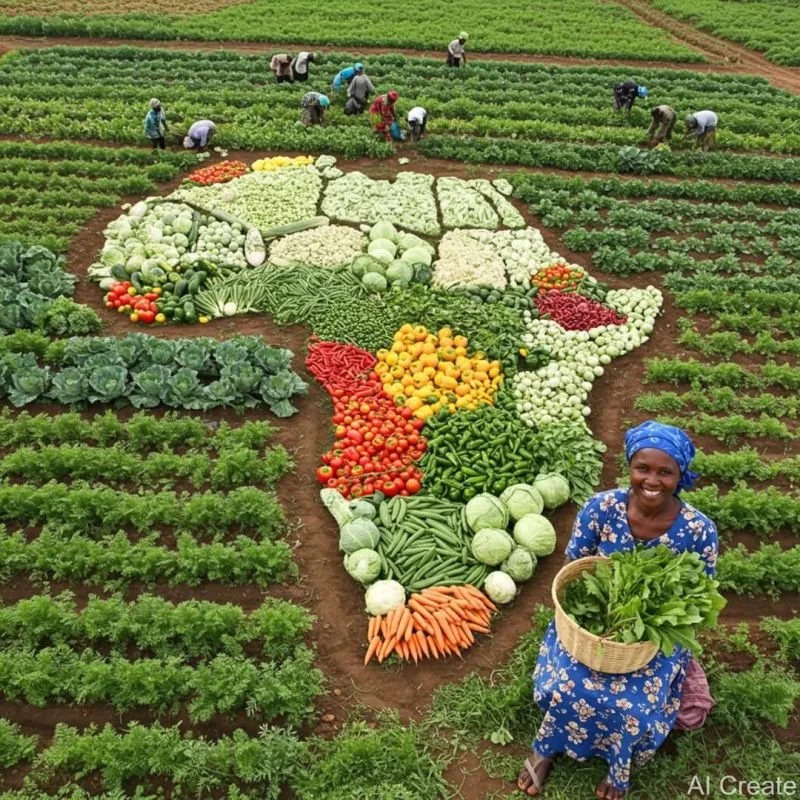Africa’s Quiet Agricultural Shift: A Story Few Are Watching
Agriculture, Food Systems and Farmer Entrepreneurship and Innovation Institute
Africa’s Quiet Agricultural Shift: A Story Few Are Watching
Sub-Saharan Africa holds a staggering 65% of the world’s uncultivated arable land, yet it remains a net food importer. This paradox is even more striking when considering that over 140 million people face food insecurity on a continent that could feed itself — and far beyond. The issue isn’t a lack of land; it’s a lack of investment.
The Potential for Growth
The University of Reading and Henley Business School have a long history of supporting African growth in all industries, including agriculture. With our school of agriculture, policy and development, we are the highest-placed UK University for Agriculture and Forestry at 20th in the world (QS World Rankings by Subject, Agriculture and Forestry, 2025). If we close the infrastructure, management, and financing gaps, Africa’s agribusiness sector could hit $1 trillion by 2030. This projection isn’t driven by hope; it’s based on trends already underway.
Success Stories
Ethiopia’s Wheat Self-Sufficiency: Ethiopia has become wheat self-sufficient and is now exporting to its neighbors — a result of targeted reforms and smart use of technology.
Mobile Platforms and Crop Science: In Rwanda, Ghana, and Nigeria, farmers are using mobile platforms, crop science, and market intelligence to drive yields up and costs down.
Growing Demand: With the continent’s population set to double by 2050, demand for food is rising fast — and so is the opportunity.
The Tools for Success
The tools are already in our hands: Smarter Policy: Better policies and regulations can support agricultural growth and development.
Improved Logistics: Efficient logistics and transportation systems can help get products to market.
Sustainability Practices: Sustainable practices can ensure long-term productivity and environmental protection.
Business and Management Skills: Developing business and management skills can help farmers and agribusinesses thrive.
Investment: Investment that looks beyond aid to long-term value can help unlock Africa’s agricultural potential.
A Call to Action: Africa doesn’t need handouts. It needs roads, R&D, and respect. If we get this right, Africa won’t just feed itself — it could help feed the world
Conclusion: Africa’s quiet agricultural shift is a story few are watching, but it’s one that holds immense potential for growth and development. By investing in Africa’s agricultural sector and supporting initiatives that promote sustainability, efficiency, and innovation, we can help unlock the continent’s potential and create a brighter future for millions of people.
Key Takeaways
Africa holds 65% of the world’s uncultivated arable land yet remains a net food importer.
Closing infrastructure, management, and financing gaps could help Africa’s agribusiness sector hit $1 trillion by 2030.
Success stories in Ethiopia, Rwanda, Ghana, and Nigeria demonstrate the potential for growth and development.
Smarter policy, improved logistics, sustainability practices, business and management skills, and investment are key to unlocking Africa’s agricultural potential
Recommendations
Invest in Africa’s agricultural sector to unlock its potential for growth and development.
Support initiatives that promote sustainability, efficiency, and innovation in African agriculture.
Encourage smarter policy, improved logistics, and better sustainability practices to support agricultural growth.
Develop business and management skills to help farmers and agribusinesses thrive.

